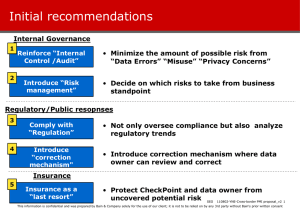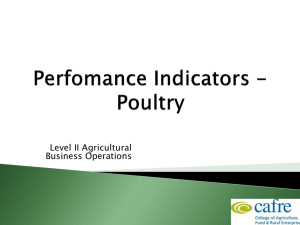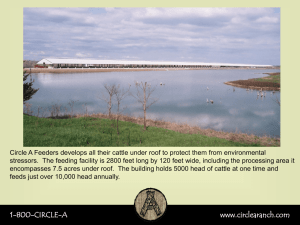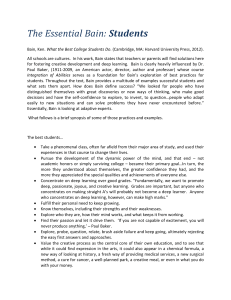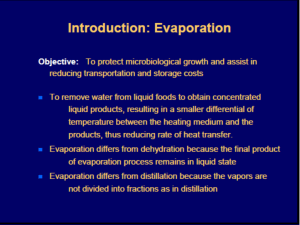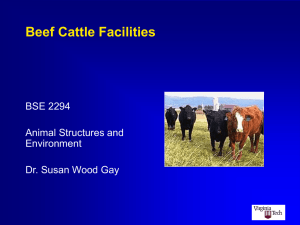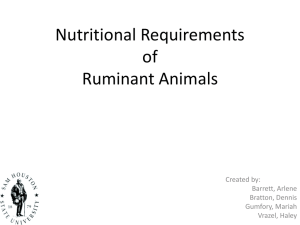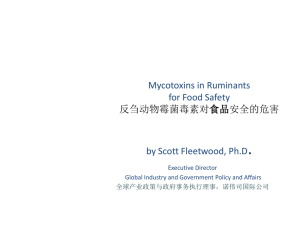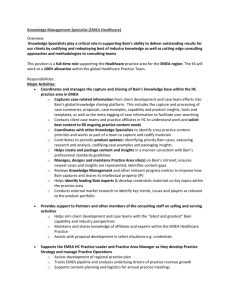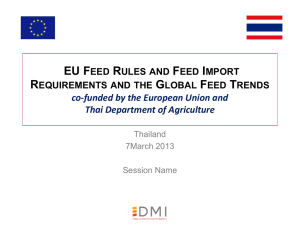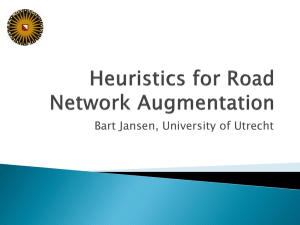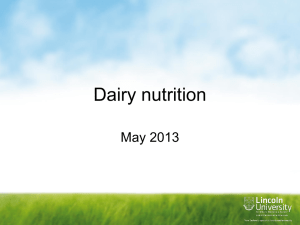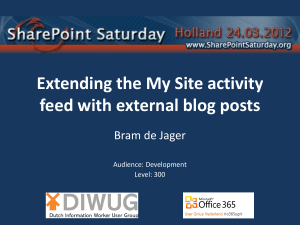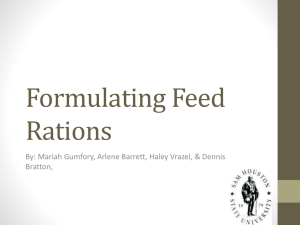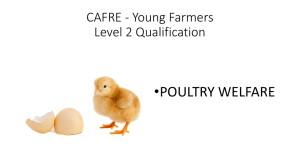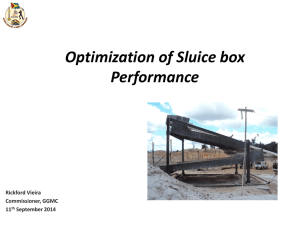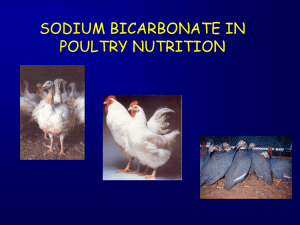outcome
advertisement
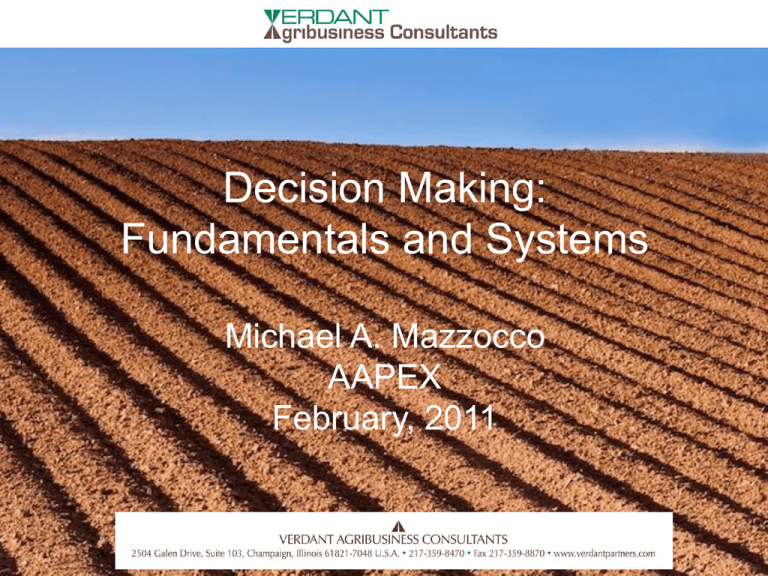
Decision Making: Fundamentals and Systems Michael A. Mazzocco AAPEX February, 2011 Mazzocco - DRAFT Overview • Two - 1:15 minute sessions • Part 1. Analyzing and Making Decisions – Some Fundamentals • Part Deux. Organizing for Effective Decisions My Observations What drove me to call Danny about decisions Seeds of motivation Can’t possibly cover all aspects in part of an afternoon My Observations What drove me to call Danny about decisions 1. Decisions often made prior to analysis [ fire, aim, ready ? ] Very popular in simplistic LEEDERship culture. “vision” “purpose” My Observations What drove me to call Danny about decisions 1. Decisions often made prior to analysis – Analyze this so I don’t look stupid … – This is what I want to do, • What are the holes in my argument and how do I fix them? – This is what I want to do, • How bad can certain parts get (price, yield, expenses) AND I‘m still OK? My Observations What drove me to call Danny about decisions 2. Analysis of decisions frequently uses wrong information – Incorporating extraneous considerations – Overlooking critical factors 3. Decision criteria not specified 4. Inaccurate data – That California plant – cost per lb. – Complete cost? – Raw or finished? Make A Decision Description What are you trying to decide? • What is the purpose of the analysis ? • What is the desired outcome of the analysis ? – Comfort? – Value? Magnitude? – Support? – Understanding? – A choice among alternatives? Make A Decision Description What are you trying to decide? • What are you trying to accomplish? – Change? Size? Revenue Throughput Costs (Inventory? Operating Expenses?) – Sustained Operations? • Employee retention? • peas:carrots land allocation? – Asset Service? • Rent, lease; size; new, used? – Risk reduction? – Say it out loud … Decision Focus and Criteria What are you trying to decide? • Strategic Direction? • Dispense and move on? • Color of carpet in the board room … ? • Short to Mid range operating profit plan? – Inputs/production methods • (twin row? Early wean?) – Output choice • (corn:beans:cotton) – Input/output • (fertilize the pastures?) Criteria dictates appropriate tool • When in doubt, look it up or ask ! • Example: Partial budget – “Make A Business Case for your idea.” – Include only CHANGES – items that will change by implementing change Partial Budget Layout Annual Revenues and Expenses Could be lots of detail and many rows Positive Impacts Negative Impacts Increased Revenues Decreased Revenues -- $$ -- $$ -- $$ -- $$ Decreased Costs Increased Costs -- $$ -- $$ -- $$ -- $$ Total Positive Impacts Total Negative Impacts Net Impact Cognitive Interference Many Categories. Here are a few. • Escalating Commitment • (M&A examples) • Measuring Others’ Pain • (M&A examples) • Cognitive Bias and Framing • In-session example Decision Making Incorporating Risk Make a payoff matrix • How many cattle to feed? Weather affects cost and availability of feed. Low 0.10 Alternative 8,000 10,000 12,000 $150,000 $0 ($100,000) Feed Production Probability Fair Good 0.25 0.35 Outcome $170,000 $120,000 $0 $180,000 $220,000 $250,000 High 0.30 Expected Value $200,000 $270,000 $350,000 $180,500 $188,000 $182,500 • TWELVE budgets [forecasts] [scenarios] [ ] • Four possible [weather] outcomes • WHICH ROW OF OUTCOMES WILL YOU SELECT ? What is decision criteria ? Decision Making Incorporating risk Make a payoff matrix • How many cattle to feed? Weather affects cost and availability of feed. Alternative 8,000 10,000 12,000 • • • • Feed Production Probability Low Fair Good 0.10 0.25 0.35 Outcome $150,000 $170,000 $180,000 $0 $120,000 $220,000 ($100,000) $0 $250,000 High 0.30 Expected Value $200,000 $270,000 $350,000 $180,500 $188,000 $182,500 WHICH ROW OF OUTCOMES WILL YOU SELECT ? What is decision criteria ? Highest Expected Value? What is expected value of a coin flip? How many “pulls of the lever” do you get? Decision Making Incorporating risk Make a payoff matrix • How many cattle to feed? Weather affects cost and availability of feed. Alternative 8,000 10,000 12,000 Feed Production Probability Low Fair Good 0.10 0.25 0.35 Outcome $150,000 $170,000 $180,000 $0 $120,000 $220,000 ($100,000) $0 $250,000 High 0.30 Expected Value $200,000 $270,000 $350,000 $180,500 $188,000 $182,500 • WHICH ROW OF OUTCOMES WILL YOU SELECT ? What is decision criteria ? • Can you afford no income? Negative income? Decision Making Incorporating risk Make a payoff matrix • How many cattle to feed? Weather affects cost and availability of feed. Alternative 8,000 10,000 12,000 Feed Production Probability Low Fair Good 0.10 0.25 0.35 Outcome $150,000 $170,000 $180,000 $0 $120,000 $220,000 ($100,000) $0 $250,000 High 0.30 Expected Value $200,000 $270,000 $350,000 $180,500 $188,000 $182,500 • WHICH ROW OF OUTCOMES WILL YOU SELECT ? What is decision criteria ? • Can you afford to chance high income? Decision Making Incorporating risk Make a payoff matrix • How many cattle to feed? Weather affects cost and availability of feed. Alternative 8,000 10,000 12,000 Feed Production Probability Low Fair Good 0.10 0.25 0.35 Outcome $150,000 $170,000 $180,000 $0 $120,000 $220,000 ($100,000) $0 $250,000 High 0.30 Expected Value $200,000 $270,000 $350,000 $180,500 $188,000 $182,500 • WHICH ROW OF OUTCOMES WILL YOU SELECT ? What is decision criteria ? • Or do you need a minimum income level? Decision Making Incorporating risk Make a payoff matrix • How many cattle to feed? Weather affects cost and availability of feed. Low 0.10 Alternative 8,000 10,000 12,000 $150,000 $0 ($100,000) Feed Production Probability Fair Good 0.25 0.35 Outcome $170,000 $120,000 $0 $180,000 $220,000 $250,000 High 0.30 Expected Value $200,000 $270,000 $350,000 $180,500 $188,000 $182,500 • All three choices are correct, depending upon your decision criteria ! Part II. Effective Decision Organizations Improve Performance (Bain) Experience of many pathologies • “Don’t do anything until I tell you what to do next.” • Bottleneck of all decisions going through one point. • Failure to have a timeline – “Let’s schedule a follow up.” • Criteria uncertain • Critical decisions at wrong place • Bad execution Symptoms of Bad Decision Structure Improve Performance • Take too long • Made by wrong people, wrong part of organization with wrong information • Turn out badly / Not made well. • Re-debated, Re-examined. • Bad execution • Pain of inconsistency (Bain) Decision Effectiveness Measures of organizational decision making 1. Quality – Right decisions. Right approach. 2. Speed – Relative, not absolute. 3. Yield – Turning decisions into action. 4. Effort – The appropriate amount. – Drag on 3 above if too much or too little. (Bain) Decision Effectiveness Structuring decisions for impact 1. What? – decisions need to be made and executed? 2. Who? – will play key roles? • • • Maker Recommender Information gatherer 3. How? – will the decision be made and executed? • • Criteria Analytical technique 4. When? – will the decision be made and executed? • Timeline (Bain) What? Structuring decisions for impact 1. Critical decisions • Large value at stake • Made / re-made frequently, adding up to large value 2. Clarity • Frame • Unbundling (Bain) Who? Structuring decisions for impact 1. RAPID • Recommend – the analyst • Agree – Who is “signing off” on recommendation? » Agreeers are not necessarily the decision maker. • Perform – Who will implement and execute? • Input – Judgment and information providers • Decide – One person 2. Actually, order is: R – I – A – D - P (Bain) How? Structuring decisions for impact (Bain) Structured Decision Approach • Agreement on criteria and technique – • • All the relevant facts More than one REAL alternative – • • Impacts Effort, Quality, and Speed Kissinger example: Three concocted alternatives. 1. Outcome is Surrender to Soviets 2. Outcome is Thermonuclear War 3. Outcome is … What the team wanted to do all along Establish steps and sequence Decision is NOT the same as discussion of choices When? Structuring decisions for impact Be Explicit • • Clear, specific timetable Impacts yield, speed (Bain) Organizational Plumbing and Wiring Structuring decisions for impact • Common vocabulary – What is “margin?” • Location of decisions: – Not all the same – Wayne Beck: “empowered.” • Understanding roles; • Using appropriate resources • Capturing input and analyses (Bain) What Else? Questions? Comments? Contact Information References Mike Mazzocco mmazzocco@verdantpartners.com http://www.verdantpartners.com/consult.php Phone: +1 (217) 359-8470 x8817 Fax: +1 (217) 359-8870 2504 Galen Drive, Suite 103 Champaign, IL 61821-7048 USA
